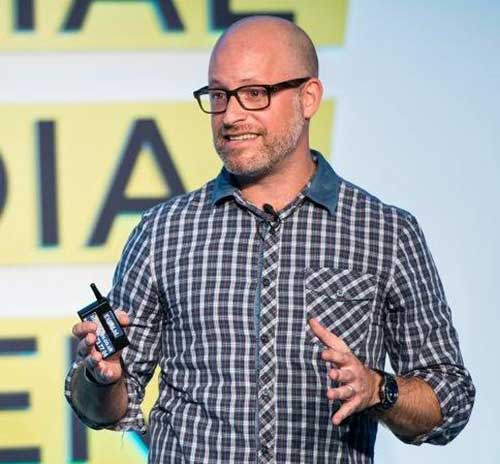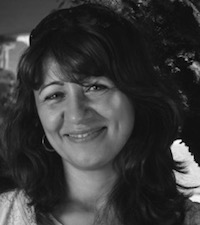
By Sunita Sehmi, Walk The Talk
Over the past decade, the very nature of the way we relate to each other has been completely transformed by online social networking and the mobile technologies that enable unrestricted access to it. Our very selves have been drawn-out into the digital world in ways formerly unimagined, giving us an immediate means of relating to others over a variety of platforms. In the Psychodynamics of Social Networking, Aaron Balick draws on his experience as a psychotherapist and cultural theorist to question the “unconscious drives” behind our online social networking use.
Aaron has a passionate interest in psychology because he knows it can revolutionise people’s lives as well as improve society as a whole.
I was very lucky to interview Aaron, who is not only kind and smart, but also an integrative psychotherapist and supervisor trained in a variety of different methodologies, from psychoanalysis to cognitive behavioural therapy.
Enjoy!
Tell us about you and your work
I am a US expat and moved to the UK in 1994 as an exchange student. In my fourth year, I elected to stay and do my psychotherapy training in London. I had a very interesting encounter after a client had Googled me, an experience in which the digital world disrupted the privacy of my consulting room. I found a nine-inch giant venomous centipede behind my TV, which I handed over to the Natural History Museum. The giant venomous centipede became most emailed news story in the world the following day, so when clients Googled me, “Giant venomous centipede from behind the television,” came up. Subsequently, I wrote a clinical paper about it (Psychoanalysis, Culture and Society 2012 Vol.17 No.2), to better comprehend what occurred and thus share this experience with others.
“Social media is not just a technology but is essentially human and deeply meaningful.”
It emerged that such happenings were occurring frequently amongst people who did not have the comfort of psychotherapy to work through the details. So, I decided that rather than writing a clinical book about social networking, I would investigate this cultural phenomenon from an interpersonal perspective to better appreciate its socio-cultural effects.
“In psychoanalysis, patients are encouraged to “free associate” - to lie back and let their unconscious do the work. The analyst sits behind the patient so they don’t get hung up on being watched, which is meant to free them up to share uncritically. Can we imagine that when one tweets, it’s a bit like free association? It seems like no one is watching, though of course there are millions.”
Tell us more about your work in Zurich
Stlllpoint Spaces was born in 2012 in Zürich, Switzerland when three colleagues with very diverse backgrounds met while training in Jungian psychoanalysis. They felt a deep need to create a space for psychologically-minded individuals of diverse cultural and educational backgrounds to connect, share, and reflect on questions of depth and meaning. At Stillpoint Spaces sites we offer new ways to engage with psychology.
While developing the safe, effective and ethical online delivery of counselling and psychotherapy services, Stillpoint Spaces has much bigger dreams – we are aiming to bring psychotherapeutic thinking to the 21st century by transcending the boundaries of the consultation room and making real stuff happen on the street, in culture, and online. Among these ideas (which will be supported by our ongoing research) will be the development of online spaces that enable and enhance psychological, emotional, and spiritual wellbeing. We will be taking a multi-disciplinary approach to this by building relationships with cultural and arts institutions in major cities, creating exciting, psychologically smart spaces online and offline.
“With Stillpoint Spaces in Zürich, Berlin, London, and now, in Paris, our mission is to empower individuals to engage with psychology, in depth, inside and outside the consulting room.”
What is the biggest takeaway from the book?
That technology has become a thing onto which we “project” together our doubts and longings. Because of this, we can lose sight of our thinking and respond out of angst. In therapy, we create a “holding environment.” It is imperative to recognise that being deprived of a "holding" environment in childhood can create feelings of insecurity.
“Technology is neither good nor bad, nor is it neutral.” Historian Melvin Kranzberg
What is the best piece of advice you were ever given?
By my therapist: “They’re just feelings Aaron.” She meant to communicate that at the end of the day, despite being the centre of therapeutic work, emotions happen. It’s learning to let them happen with equanimity that counts.
What’s the next challenge for us?
It is an important mission and one we all need to be mindful of when we engage on social media. A therapist can help a client rediscover a true sense of being. It is vital for us all to be aware that, no matter how you see yourself on social media, now, more than ever, we need to access the deeper parts of ourselves, so we can operate better and more authentically in this fast-moving world. We need to recognise that on social media we are revealing only one side of ourselves and not necessarily the whole picture. We all need to educate ourselves about the impact of online communication and behaviour. Shame is a powerful emotion that can control our behaviour and infiltrate every aspect of our lives, influencing the way we live.
What’s the next challenge for you?
I have just finished another book “Little Book of Calm” out in January 2018. And of course I'm still working on developing Stillpoint Spaces London and our international platform.
“Psychotherapy is a bit like slow food in a fast food culture. Once or twice a week you slow down, chew slowly, and taste all the flavours. It's your life, as far as we know you've only got the one, so make it count and find out who you are.”
References
https://www.stillpointspaces.com/counselors/51
In this interview on The Digital Human, Aaron Balick explains how shame needs a witness in order to be felt, how we need to be able to see our selves through the eyes of another, and if we break a social norm we are made to feel shame.
Sunita's Bio

Sunita is an Executive Coach, Trainer and Consultant. She is of Indian origin and was born in London before moving to Geneva in 1992. She has a Psychology background (specialising in Occupational Psychology) and a Post Graduate in the Development and Training of Adults. She also completed a Masters in Ressources Humaines, Coaching et Gestion des Carrières at the University of Geneva.
During her 25 years experience Sunita's drive has always been to help people to do their best and hence led her to create Walk The Talk.
In her free time Sunita is a Mentor for the Branson Center of Entrepreneurship and a proud member of the School in The Cloud Team.










